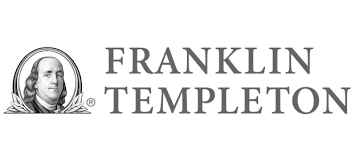
The drive to stop global warming
Climate change; unsustainable urban growth; and air, water and land pollution all represent existential threats not only to global populations and societies, but also to businesses. While the physical risks that climate change poses to businesses are those that threaten all of us, there are many transitional risks to which certain companies will be less resilient. Transitional risks imply structural changes arising from policy changes and shifts in market preferences, norms and technology. This can be reflected in increased costs such as emissions legislation that results in carbon taxes, having to invest in new lower-emission technologies and raw materials, or declining consumer demand due to reputational risk, or products or services becoming redundant or obsolete.
The focal point of efforts remains the 2015 United Nations' Paris Agreement at COP21. The agreement was a collective commitment by the world's governments to combat climate change. It was decided that commitments, policies and action were needed to deliver a 7% greenhouse-gas emissions reduction every year between 2020 and 2030, so global warming can be limited to 1.5°C, preventing the most catastrophic effects of climate change.
2021 is shaping up to be a pivotal year
The six years since the agreement have seen some progress, but also some setbacks. While many countries have pledged to reach zero carbon emissions by the middle of the century, the focus on the COVID-19 pandemic over the past year and President Trump's orders to roll back the Obama administration's green initiatives and pull out of the Paris Agreement have represented setbacks. There is clearly a long way to go, but we think 2021 could reset the focus in the fight against climate change.
First of all, the delayed COP26 in Glasgow in November should see further targets and initiatives announced. Furthermore, today's world is, in many respects, more accommodative to the goals of the Paris Agreement. The new Biden administration is looking to build a greener economy and in fact, across the world, commitments to reaching net zero emissions have doubled in the past year at the corporate, regional and national levels, and the pace continues to accelerate.
How are businesses and investors adapting to these changes?
While the above measures are all welcome and necessary, they are far from sufficient. For investors looking to capitalise on these and future commitments, the developments we have seen so far may only represent the beginning of a decade-long shift. The impact of the US appearance on the climate stage as a leader for the first time can hardly be overestimated. The 2030 emissions gap has been reduced by 12-14% alone since President Biden's climate summit in April 2021,1 which secured further commitments from governments around the world. However, assuming all pledges will be adhered to, the world as a whole is still roughly 20 gigatons of CO2 equivalents (CO2e) above its 1.5 degree budget. To put that number in context: 20 gigatons are more than three times the annual CO2e emissions of the US in 2019.1,2 Hence, the drive to lower greenhouse gas emissions is not just forcing the hands of governments and regulators, but is making businesses and investors think about a different future for our planet too.
The European Union's (EU's) action plan
Through the EU Action Plan for Sustainable Finance, the European Commission (EC) has sought to hardwire sustainability considerations into the financial system and is seeking to channel public and private capital towards investments to meet the decarbonisation targets. As part of the Action Plan, the Technical Expert Group (TEG) on sustainable finance was established in 2018 to advise on the objectives and steps needed. One of the steps was to develop sustainability benchmarks to promote Paris-aligned investments. The TEG set out minimum standards on two types of climate benchmarks that aim to provide clear rules that ensure the indexes are comparable and transparent: the EU Climate Transition Benchmark (EU CTB) and the EU Paris-Aligned Benchmark (EU PAB).
A new class of benchmarks tackling climate change
The new climate benchmarks leverage the rapidly growing pool of available data and analytics, assessing how aligned each underlying company is to a 1.5 or 2C global warming scenario. Not only do they aim to hedge against climate transition risks (backward looking), but also to capture opportunities (forward looking). Research includes independently assessed science-based targets, CO2 emissions, and forward-looking product, strategy, emissions and policy plans.
Paris-Aligned indexes: flexible portfolio construction tools for addressing climate change
Based on a robust framework of risk and opportunity oriented minimum standards, the Paris Aligned Climate Benchmarks provide a simple and effective tool to address climate change within your portfolio. The underlying indexes have ambitious carbon reduction targets, as well as meaningful broader environmental, social and governance (ESG) components.
To visit the Franklin Templeton website please click here.
Endnotes
1. "New momentum reduces emissions gap, but huge gap remains—analysis," Climate Action Tracker, 23 April 2021, https://climateactiontracker.org/press/new-momentum-reduces-emissions-gap-but-huge-gap-remains-analysis/.
2. "Inventory of U.S. Greenhouse Gas Emissions and Sinks," United States Environmental Protection Agency, https://www.epa.gov/ghgemissions/inventory-us-greenhouse-gas-emissions-and-sinks.
---
All investments involve risk. We recommend professional investment advice before making an investment. The value of an investment can go up or down. Investors may not be able to get back the amount invested. Find out now about the opportunities associated with investing in our funds opportunities and risks: www.franklintempleton.co.uk. Sales brochures and other documents are available free of charge from Franklin Templeton Investment Management Limited (FTIML), Cannon Place, 78 Cannon Street, London EC4N 6HL, Tel: +44 (0) 20 7073 8500, franklintempleton.co.uk.
© 2021 Franklin Templeton. All rights reserved.
This material is intended to be of general interest only and should not be construed as individual investment advice or a recommendation or solicitation to buy, sell or hold any security or to adopt any investment strategy. It does not constitute legal or tax advice. Special risks are associated with foreign investing, including currency fluctuations, economic instability and political developments; investments in emerging markets involve heightened risks related to the same factors. To the extent the fund focuses on particular countries, regions, industries, sectors or types of investment from time to time, it may be subject to greater risks of adverse developments in such areas at focus than a fund that invests in a wider variety of countries, regions, industries, sectors or investments.
Franklin LibertyShares ICAV ("the ETF") investment returns and principal values will change with market conditions, and an investor may have a gain or a loss when they sell their shares. Please visit www.franklinresources.com for the Franklin LibertyShares ICAV's standardised and most recent month-end performance. There is no guarantee that any strategy will achieve its objective.
All performance data shown is in the fund's base currency. Performance data is based on the net asset value (NAV) of the ETF which may not be the same as the market price of the ETF. Individual shareholders may realise returns that are different to the NAV performance. Past performance is not an indicator or a guarantee of future performance. The actual costs vary depending on the executing custodian. In addition, deposit costs may be incurred which could have a negative effect on the value development. Please find out the costs due from the respective price lists from the processing/custodian bank. Changes in exchange rates could have positive or negative effects on the development in Euro. Please visit www.franklinresources.com for current performance and see the prospectus for further details. Information is historical and may not reflect current or future portfolio characteristics. All portfolio holdings are subject to change.
An investment in Franklin LibertyShares ICAV entails risks which are described in the prospectus and in the relevant Key Investor Information Document.
Franklin LibertyShares ICAV (domiciled outside of the U.S. or Canada) may not be directly or indirectly offered or sold to residents of the United States of America or Canada. ETFs trade like stocks, fluctuate in market value and may trade at prices above or below the ETFs net asset value. Brokerage commissions and ETF expenses will reduce returns.












